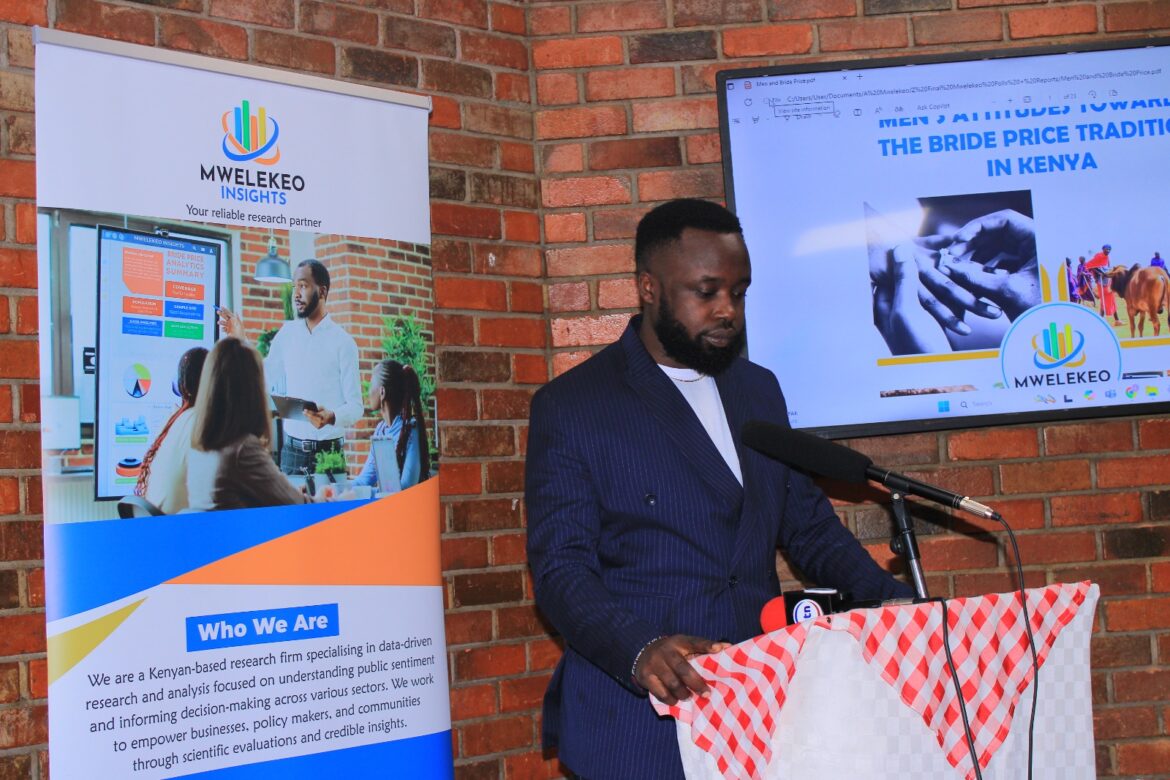A recent study by Mwelekeo Insights has revealed that many Kenyan men are calling for reforms to the traditional bride price system, with a majority supporting the idea of staggered payments, popularly referred to as “lipa mdogo mdogo”.
The study, which focused on male adults aged 18–45 across various parts of the country, sought to understand current attitudes toward the bride price tradition, its relevance today, and how cultural, economic, and religious factors shape these views.
The findings show that while 53% of Kenyan men still support the tradition, 47% oppose it.
Support tends to be stronger among older and rural men, who view bride price as a cultural cornerstone symbolising respect, family unity, and a seal of marriage.
However, younger and urban men are more skeptical, citing financial strain, changing gender norms, and exposure to global values as reasons for their opposition.
One of the key takeaways from the study is the growing demand for flexible and modernized approaches to bride price.
A staggering 83% of participants endorsed the idea that bride price should be paid gradually over time, easing the pressure on young men who often struggle with limited incomes and high financial expectations from the bride’s family. The idea of “lipa mdogo mdogo” reflects a desire to preserve cultural traditions while adapting them to current realities.
Additionally, 65% of participants supported the proposal that bride price should be cost-shared between the man and woman, especially considering today’s economic hardships.
This move is seen not only as practical but also as a way to foster partnership and equality in relationships. However, 35% opposed this, arguing that bride price should remain the man’s responsibility as a cultural duty.
While the call for reform is loud, complete abolishment of the practice remains a divisive issue.
48% supported the idea of scrapping bride price altogether, pointing to its association with commodifying women, creating inequality, and causing emotional and financial stress.
However, 52% opposed its abolition, defending it as a key part of cultural heritage that should be maintained but possibly restructured.
The study also explored controversial alternatives, such as having women pay the bride price.
A mere 29% supported this shift, with 71% strongly opposing it, revealing a continued attachment to the traditional male role in marriage transactions.
This also reflects the deep-rooted societal expectations linking bride price to masculinity and male identity.
Men in the study voiced concern that the pressure to meet bride price demands affects their emotional well-being, with 58% saying it negatively impacts them.
Only 42% linked it to their social identity, but the emotional toll was significant, especially among unmarried men who often delay marriage due to inability to meet expectations.
Religion and culture remain strong influences, with 66% saying these factors support the tradition, although many agreed that religious and cultural norms can evolve to support symbolic or less financially burdensome forms but 44% opposed.
Notably, 65% of men rejected the idea that bride price undermines women’s autonomy, but 28% especially educated and urban men said the tradition reinforces patriarchal control and 7%are unsure. Mwelekeo Insights study shows that while the bride price tradition is still valued by many Kenyan men, the pressures, costs, and changing social dynamics are fueling a push for reform.
Mwelekeo Insights study shows that while the bride price tradition is still valued by many Kenyan men, the pressures, costs, and changing social dynamics are fueling a push for reform.
Men are not necessarily calling for the total elimination of the practice, but rather for a model that aligns with modern economic and relational realities one that encourages couple-led decisions and emphasizes mutual respect over outdated expectations.
The popular idea of paying bride price in installments, or “lipa mdogo mdogo,” captures this evolving mindset and the need to strike a balance between tradition and modernity.
Find attached the full report by visiting there official website and all their social handles @MwelekeoKe



